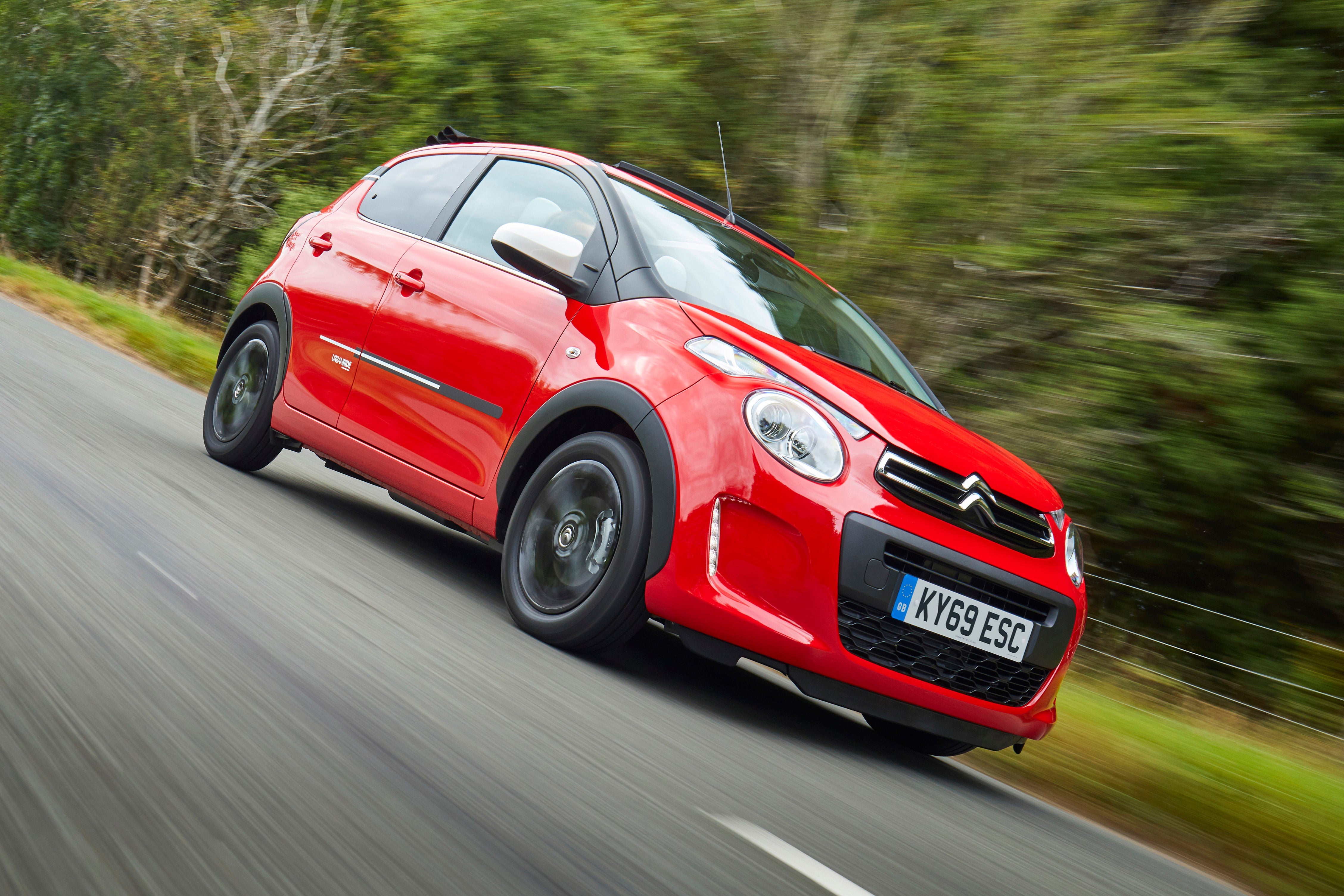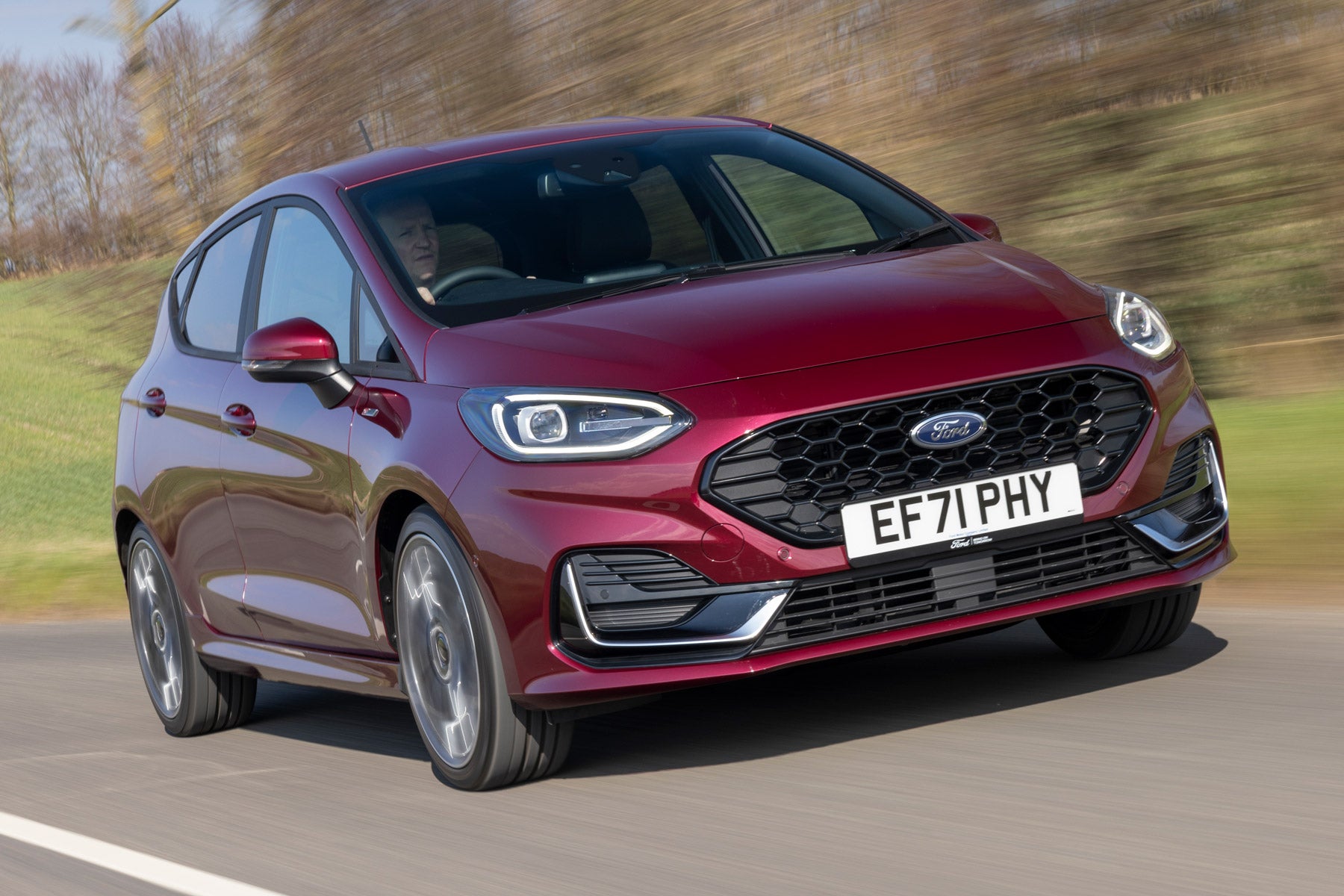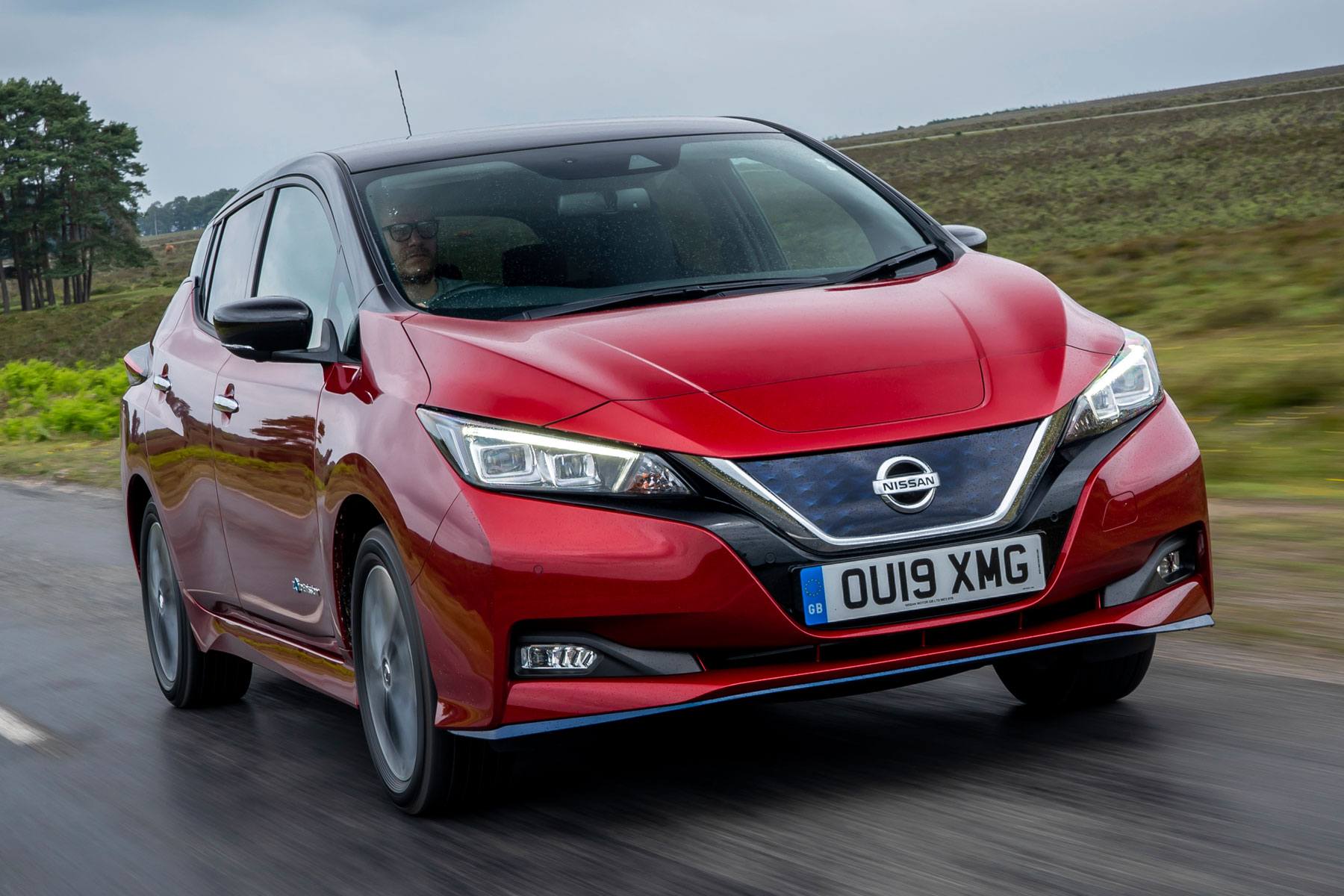
Use our comprehensive guide to find the new VED Band prices and discover the latest road tax for your car.
If you’ve got a car, you need to know about Vehicle Excise Duty (VED), better known as car tax or road tax.
With a few exceptions (which we’ll talk about below), you have to tax your car, even if you don’t actually have to pay anything. And the rules are regularly shifting. In this article, we’ll explain the basics of car tax, who has to pay what and why, and how things are changing in the future.
How does car tax work in the UK?
To drive a car in the UK, you have to pay tax to the Government. This tax, known as Vehicle Excise Duty, is based on how polluting your car is – the more your car emits from its exhaust, the more you have to pay. (Broadly speaking. The rules have changed over the years and will continue to do so, but more on that shortly.) You can pay for your car tax annually, every six months or monthly.
The amount charged for car tax generally rises each year in line with inflation, as defined by the Retail Price Index (RPI). The last rise was on 1 April 2024. Things will change again on 1 April 2025 – and if you drive an electric car, they'll change quite dramatically.
The money raised from VED goes into the general taxation pot to be spent on all sorts of things. It’s not, as is commonly (but mistakenly) thought, ringfenced to spend on maintaining the road network.
Key points for car owners and buyers from 1 April 2025
The Government's Autumn Budget in 2024 set out some big changes for VED from April.
First year rates for the highest polluting cars will be doubling from April 2025. It means you could have a £5500 road tax bill in the first year.
- Electric car buyers will pay the lowest first year rate of just £10 – this is fixed until 2029-30 and replaces the previous zero rate.
- Low-emission cars (1-50g/km of CO2) will see rates increase from £10 to £110 – and this includes some hybrid cars.
- Cars emitting 51-75g/km CO2 will see an increase in the first year rate of tax from £30 to £130.
- Cars emitting 76g/km CO2 or more will see the first year rate of tax double. This will mean that if you buy a new car that emits 91-100g/km of CO2, the price will increase from £175 to £350.
- A car emitting 151-170g/km CO2, currently taxed at £680, will rise to £1360.
- Most significant is the increase for the highest emitting new cars, with models that emit 255g/km CO2 seeing a first year tax rate increase from £2745 to a hefty £5490.
VED rates for cars, vans and motorcycles after the first year will also increase in line with RPI from April 1st 2025. This will see an increase of £5 from £190 to £195 from 1 April. In addition, the hybrid vehicle discount has been removed, and all vehicles will pay the same standard rate.
Latest VED tax bands (2025/2026)
The table below shows you the car tax you’ll need to pay up from the start of April 2025. There’s a small increase in VED rates in line with RPI, but significant increases for first year tax rates.
CO2 emissions
- 0 g/km
- 1 to 50 g/km
- 51 to 75 g/km
- 76 to 90 g/km
- 91 to 100 g/km
- 101 too 110 g/km
- 111 to 130 g/km
- 131 to 150 g/km
- 151 to 170 g/km
- 171 to 190 g/km
- 191 to 225 g/km
- 226 to 255 g/km
- Over 255 g/km
Standard Rate
- £195
- £195
- £195
- £195
- £195
- £195
- £195
- £195
- £195
- £195
- £195
- £195
- £195
First Year rate
- £10
- £110
- £130
- £270
- £350
- £390
- £440
- £540
- £1360
- £2190
- £3300
- £4680
- £5490
How much is my car tax 2025/2026?
How much your car costs to tax in 2025 and 2026 will depend on the car and when it was first registered. Different rules apply to cars of different ages.
The most recent rule change was in April 2020, when a different method of measuring a car’s emissions was introduced. It uses the Worldwide Harmonised Light Vehicle Test Procedure (WLTP), which is a standardised test intended to better reflect real-world results than previous methods of measurement.
Let’s run through the various permutations.
Taxing a new car: first-year VED car tax rate
When you buy a brand-new car, the first year’s tax is included in the on-the-road (OTR) price. That means that you generally won’t notice it, although it’s worth noting how much it is. The amount is based on your car’s carbon dioxide (CO2) emissions.
From 1 April 2025 the amount charged for the first-year ranges from £10 for zero-emissions cars (that’s electric cars to you and me), up to a whopping £5490 for the most polluting models, with CO2 emissions of 255 grams per kilometre (g/km) or more.
What brand-new cars are tax exempt?
At the start of 2025, if you buy a brand-new zero-emission car – i.e. an electric car – the first-year tax rate is £0.
However, that’s set to change from 1 April, when electric cars will move to the lowest chargeable rate for the first year. That’s currently £10.
What about tax on a brand-new car after the first year?
After the first year, there’s a flat rate of tax per year, which from 1 April 2025 is £195. However, if you have a car that had a list price of more than £40,000 when it was first registered, you have to pay a surcharge of £425 for the next five years, making a total of £620.
That £40,000 mark includes options, so keep a close eye on what was added to your car if you’re buying used. Electric cars were previoously exempt from the £40,000 surcharge, but won't be from April. Nor is there any discount for hybrid vehicles.
Will electric cars pay tax from 2025?
Yes, they will. New zero-emission (electric) cars registered from 1 April 2025 will incur the lowest first-year rate of VED, which is £10 . After that, they'll attract the standard rate of tax – £195 a year – unless they cost more than £40,000 when new. In that case, they'll have to pay the premium car surcharge for five years, which using current rates means an annual bill of £620, after which only the standard rate will be charged.
Existing electric cars, registered from April 2017 but before April 2025, will also be liable for the standard rate of VED. Zero and low-emissions cars registered between March 2001 and the end of March 2017 will move up a band, from Band A to Band B, which currently attracts a rate of £20 a year.
Older cars registered between 2001 and 2017
If you drive an older car, the car tax rules are different. Here’s how.
If your car was registered between 1 March 2001 and 31 March 2017, you don’t pay a flat rate in the way that you would for a newer car. Instead, your tax is calculated based on your fuel type and its CO2 emissions rating, as per your car’s V5C registration certificate (also known as the logbook). The emissions put it into a band, from A to M, which dictates what the annual fee is.
Band A was tax-free at one point, from but from 1 April 2025 Band A cars move to Band B, paying £20 a year.
Still, this could work out as being a lot cheaper than a newer car – something well worth considering when looking at used cars. Cars that were registered either side of the rule change could bring you very different tax bills, even if they’re exactly the same.
Once again, you can pay annually, or every six months or monthly by Direct Debit for a 5% surcharge. Alternative fuel cars used to get a discount of £10, but that will be discontinued from 1 April.
Car Tax for cars registered between 1 March 2001 and 31 March 2017
The below rates are for the 2025-2026 tax year
Vehicle Excise Duty Band
- A
- B
- C
- D
- E
- F
- G
- H
- I
- J
- K*
- L
- M
CO2 emissions
- Up to 100
- 101 to 110
- 111 to 120
- 121 to 130
- 131 to 140
- 141 to 150
- 151 to 165
- 166 to 175
- 176 to 185
- 186 to 200
- 201 to 225
- 226 to 255
- Over 255
Standard rate
- £20
- £20
- £35
- £165
- £195
- £215
- £265
- £315
- £345
- £395
- £430
- £735
- £760
What pre-2017 cars quality for free car tax?
While newer cars only skip an annual payment if they’re fully electric, older cars can sneak under the payment limit if they emit less than 100g/km of CO2 according to official figures.
These cars generally tend to be smaller vehicles with small capacity engines, but there are lots of them. You’ll need to dig into the specifics of each model, as much depends on when they were made, exactly what engine and trim spec they have, and of course when they were registered. They range from versions of the Ford Fiesta through to the Volkswagen Golf and even the Nissan Qashqai SUV.
Hybrids and particularly plug-in hybrids can also fit into this category, such as the BMW 330e PHEV.
Cars registered before 2001
If your car was registered before 1 March 2001, then the tax rules are completely different. Gone is the reliance on CO2 emissions, because the figures for cars this old aren’t readily available. Instead, you’ll be taxed solely on the size of the engine.
That makes things pretty straightforward. Engine under a 1.5-litre? That’ll be £210 a year. Anything bigger will be £345.
(Actually, the lower category is not exactly 1.5 litres, it’s specifically “not over 1549cc”. So you’ll have to check the minutiae of the engine specifications for the car you’re looking for if it’s marketed as a 1.5.).
What cars are exempt from car tax?
While some cars – such as electric cars – don’t need to pay car tax, they still need to be registered. However, some cars are completely exempt. They include:
- Vehicles used by a disabled person. You can find out if you’re eligible on the government website, and claim exemption if you meet the criteria. This only applies to one vehicle though – if you have more than one car, you’ll need to pick one to be exempt.
- Historic vehicles. If your car was made before 1 January 1985, it’s exempt from car tax from 1 April 2025=. This date moves forward by one year from April each year.
- Cars used for agriculture, horticulture and forestry. As well as tractors and agricultural engines, limited use vehicles that are used only for short journeys on a public road are exempt from car tax. However, the journeys must be between land owned by the same person.
Your Car Tax questions answered
Cars that were registered between 1 March 2001 and 31 March 2017 that produce 100g/km CO2 or less are completely free to tax until April 2025. Models include city cars such as the Volkswagen Up and Citroen C1. From April 2025 these cars will move from the £0 Band A rate to the Band B rate, which is £20 a year. After that date, historic cars built before 1 January 1985 are exempt.
Electric and hydrogen cars (which produce no CO2 emissions) are 100% free to tax until 1 April 2025. Hydrogen cars are thin on the ground and expensive to buy, but electric models are abundant and, because none of them produce CO2s, you can choose from small cars, big cars and even SUVs – the Renault Zoe, Tesla Model S and Audi e-tron are some of our favourites.
From 1 April 2025 you'll also be exempt from paying car tax if you're on the Motability Scheme or you drive a historic vehicle (one that is at least 40 years old).
From 1 April 2017, all new cars are taxed against three new VED bands – zero, standard and premium – with taxation calculated on a combination of emissions and the list price of the vehicle.
This means that only cars that emit zero CO2 and cost less than £40,000 qualify for zero VED. The majority of petrol and diesel cars will pay a standard rate of £190 a year, while hybrids will pay slightly less at £180 per year.
As well as new VED bands, the government introduced new first year rates, which are calculated on the CO2 emission levels. Most family car buyers pay between £135 and £195 for the first year rate, while the most polluting cars (255g/km+ of CO2) pay as much as £2745. All cars registered before April 1 2017 continue to be taxed against the old CO2 emission levels (see tables above).
Hybrid buyers were among the hardest hit by the changes, having to pay road tax for the first time. It's not quite as much as petrol or diesel cars, instead, but a new first year rate was introduced and there's an ongoing yearly charge after that.
You can get a 50% reduction in vehicle tax if you get the PIP standard rate mobility component. The vehicle should be registered in the disabled person’s name or their nominated driver’s name. You cannot get a reduction for getting the DLA lower rate mobility component.
To apply, you will need:
- a letter or statement from the Department for Work and Pensions that shows your PIP rate and the dates you’re getting it
- the vehicle log book (V5C)
- a V10 form
- an original MOT or GVT certificate (if your vehicle needs one)
- a cheque or payable order (made out to ‘DVLA, Swansea’) for 50% of the full rate of car tax for the vehicle
- an insurance certificate or cover note (if you live in Northern Ireland)
Car deals
Whether you're looking for a great PCP deal or looking for a car on 0% finance, we've got the car deal for you
More electric and hybrid car guides
Whether you're looking for advice on what hybrid car to buy or looking to find your next EV, we've got the answer


